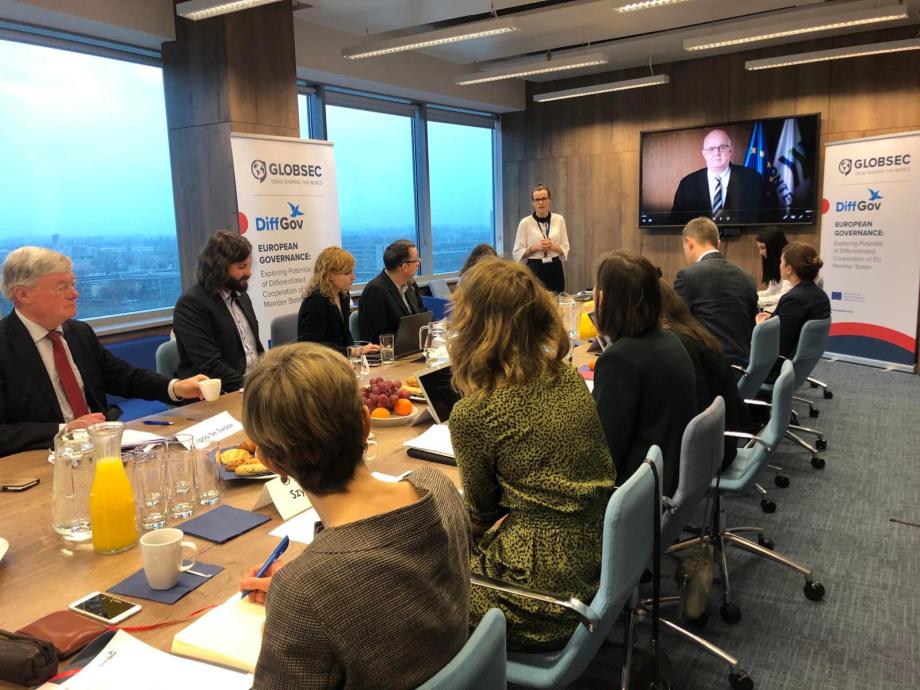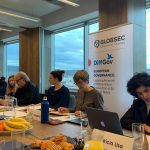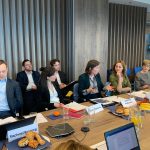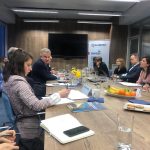02-03.03.2020 - Schengen zone and European Migration Policy. Differentiated Cooperation in Action

“Schengen area is truly one of the greatest achievements of European integration” said Berndt Körner, Deputy Executive Director of Frontex, while e-opening a seminar “Europe on the Move: Open or Closed Borders?” held in the premises of GLOBSEC in Slovakia on 2-3 March 2020. “We must not give up on Schengen, we have to even intensify cooperation and work on strengthening our project for our safety, security and wellbeing” he continued.
The Schengen Area as an example of enhanced cooperation has so far functioned well. Today the intergovernmental initiative, which was initially signed in Luxemburg only by 5 EU Member States, has not only been integrated into the body of rules governing the EU but also encompasses most EU States (22 out of 27). Interestingly, of non-EU States it includes Iceland, Norway, Switzerland and Liechtenstein.
There is no doubt that Schengen is a symbol of aspiration and prosperity. It will survive only if trust and solidarity prevail over national interests among Member States. What is clear today, there is no end of Schengen zone but rather reconfiguration of it. The main reason being is that today we do not look at the agreements as abolition of checks at the common border, but we rather look into what is happening at the external border. To sum up, nowadays the Schengen discussion is connected to security and public health aspects in Europe rather than internal aspects. Finally, despite the fact that Bulgaria, Croatia and Romania are currently in the process of joining the Schengen Area, future accessions are not likely to happen in a short or medium term.






When it comes to the EU migration policy, foremost, it needs to be depoliticized and addressed by experts, as was the case a decade ago. The EU should avoid operating in “crisis mode” and go back to normal because it is losing a holistic picture of challenges ahead. So far, a lack of consensus and solutions to resolve the existing migration issues by Member States, has created divisions. Conversely, what the EU Member States agree on today, is using in a public discourse generally loaded words such as ‘solidarity’, ‘responsibility’, ‘Dublin’ and ‘relocation’. The opportunity for Member States to change the status quo is a constructive approach to the New Pact on asylum and Migration, due to be unveiled in the spring. Finally, migration can become less “toxic” as soon as the “climate or green deal” becomes “new” “migration” in the EU.







Those were some of the findings of DIFF GOV roundtable entitled “Europe on the Move: Open or Closed Borders?” hosted on 2-3 March 2020 at GLOBSEC office in Slovakia.
In total the roundtable consisted of four panels such as “Reflections on 100 days in the office of the new Commission”, “Schengen Zone: Study Case of Enhanced Cooperation. Looking Back to the History, Lessons Learnt and the Way”, “Future of Schengen: Drafting Scenarios for Future” and “European Migration Policy – New Area of Flexible Cooperation in Europe?”.





DIFF GOV brought together 18 speakers from 12 EU Member States (Austria, Belgium, Czechia, Germany, Finland, France, Hungary, The Netherlands, Poland, Slovakia, Spain, Sweden). They were representatives of well-known academic centres and think tanks such as the Open Society European Policy Institute (Brussels), The Elcano Royal Institute for International and Strategic Studies (Madrid), German Institute for International and Security Affairs SWP (Berlin), Finnish Institute of International Affairs FIIA (Helsinki), Austro-French Centre for Rapprochement in Europe (Vienna), Swedish Institute for International Affairs (Stockholm), and Erasmus University Rotterdam, and the University of Helsinki. The event was opened by Berndt Körner, Frontex's Deputy Executive Director (via video).
In addition, the roundtable was attended by 25 participants from Slovakia and Austria.
The roundtable formed a part of the project DIFF GOV: European Governance: Potential of Differentiated Cooperation, supported by Jean Monnet Activities of the EU Programme Erasmus+ which is being implemented between 1 September 2018 and 31 August 2020.
The DIFF GOV City talk on the same topic will be organized in May 2020 in Slovakia.
Coverage in social media
